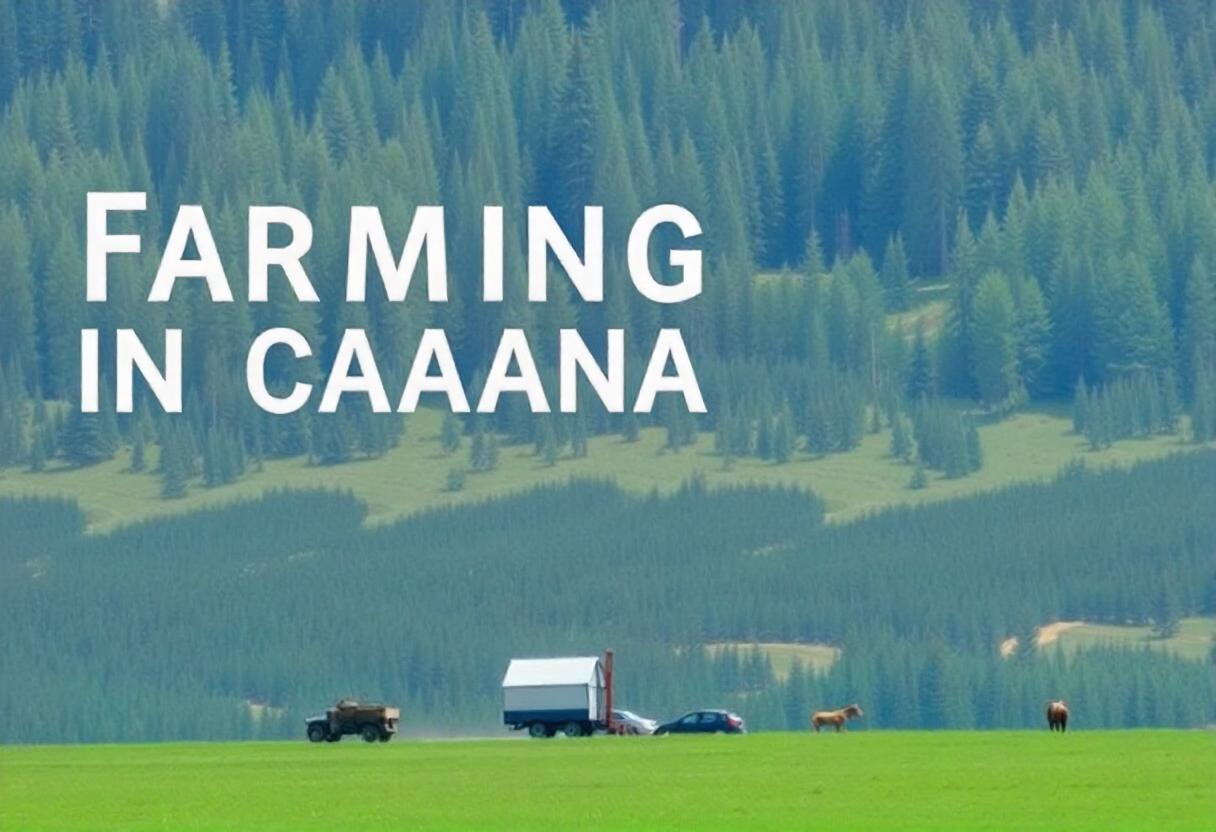
Farming in Canada is a vital component of the nation’s economy and culture, shaping landscapes and communities from coast to coast. With its diverse climatic conditions and extensive land resources, Canadian agriculture is as varied as the country itself. This article delves into the current state of farming in Canada, exploring the industry’s structure, key trends, challenges, and future outlook.
The Structure of Canadian Farming
1. Diverse Agricultural Sectors
- Crop Production: Canada is renowned for its large-scale crop production. Major crops include wheat, canola, barley, corn, and soybeans. The Prairie Provinces (Alberta, Saskatchewan, and Manitoba) dominate in grain and oilseed production due to their vast, fertile prairies.
- Livestock Farming: The livestock sector is also significant, with beef cattle, dairy cattle, and poultry being the primary focus. Alberta is a major player in beef production, while dairy farming is concentrated in Quebec and Ontario.
- Specialty Farming: In addition to mainstream crops and livestock, Canada has a growing sector of specialty farming, including organic farming, greenhouse production, and niche products like maple syrup and berries.
2. Farm Size and Ownership
The structure of farms in Canada ranges from large commercial operations to small family-run farms. According to the 2021 Census of Agriculture, there were approximately 193,000 farms in Canada. The majority of these are family-owned and operated, though the trend toward consolidation has seen an increase in the size of commercial farms.
Key Trends in Canadian Farming
1. Technological Advancements
Modern farming in Canada increasingly relies on technology to enhance productivity and efficiency. Precision agriculture tools, such as GPS-guided machinery, drones, and data analytics, are becoming standard. These technologies help farmers make data-driven decisions, optimize resource use, and increase crop yields.
2. Sustainability and Environmental Practices
There is a growing emphasis on sustainable farming practices. Canadian farmers are adopting practices such as reduced tillage, cover cropping, and integrated pest management to mitigate environmental impact and improve soil health. Many farms are also exploring renewable energy sources, like solar and wind power, to reduce their carbon footprint.
3. Climate Change Adaptation
Climate change is altering agricultural practices in Canada. Farmers are adapting to shifting weather patterns, including more frequent extreme weather events, changing precipitation levels, and shifting growing seasons. Research and innovation in crop varieties, soil management, and water conservation are crucial for adapting to these changes.
4. Market and Trade Dynamics
Canada’s agricultural sector is highly export-oriented, with a significant portion of production destined for international markets. Trade agreements and global market conditions impact farm profitability. Recent trade agreements, such as the Canada-United States-Mexico Agreement (CUSMA), have provided Canadian farmers with improved access to key markets but also exposed them to global market fluctuations.
5. Consumer Preferences
Canadian consumers are increasingly interested in local and organic foods. This shift in consumer preference is driving growth in organic farming and local food systems. Farmers are responding to this demand by diversifying their products and engaging in direct-to-consumer sales, such as farmers’ markets and community-supported agriculture (CSA) programs.
Challenges Facing Canadian Farmers
1. Economic Pressures
Farming is subject to significant economic pressures, including fluctuating commodity prices, high input costs, and financial risks. These factors can impact farm profitability and sustainability. Farmers must navigate complex market conditions and manage risks associated with price volatility and economic uncertainty.
2. Labor Shortages
The agricultural sector often faces labor shortages, particularly during peak seasons. Finding skilled labor for tasks such as planting, harvesting, and animal care can be challenging. The reliance on seasonal and temporary workers, including foreign labor, adds to the complexity of labor management in farming.
3. Regulatory and Policy Issues
Farmers must comply with a range of regulations and policies related to environmental protection, food safety, and animal welfare. Navigating these regulations can be complex and costly, particularly for small and medium-sized farms. Government policies and support programs play a critical role in shaping the operational landscape for Canadian farmers.
The Future of Farming in Canada
Looking ahead, the future of farming in Canada will be shaped by ongoing trends and emerging developments. Key areas to watch include:
1. Innovation and Technology
Continued investment in agricultural research and technology will drive future growth. Advances in biotechnology, automation, and digital tools will enhance productivity, sustainability, and resilience in Canadian farming.
2. Sustainability and Climate Resilience
Adapting to climate change and implementing sustainable practices will be essential for the long-term viability of Canadian agriculture. Farmers will need to balance productivity with environmental stewardship to ensure the health of their land and resources.
3. Market Opportunities
Expanding into new markets and diversifying product offerings will provide opportunities for growth. Embracing consumer trends, such as demand for locally produced and organic foods, will help farmers capture new market segments.
4. Policy and Support
Ongoing government support and policy initiatives will be crucial in addressing challenges and supporting the agricultural sector. Programs that provide financial assistance, research funding, and infrastructure development will play a key role in sustaining farm profitability.
Farming in Canada today is a dynamic and evolving industry that plays a crucial role in the nation’s economy and food security. While it faces challenges such as economic pressures, labor shortages, and regulatory complexities, the sector also benefits from technological advancements, sustainability efforts, and market opportunities. As Canadian farmers adapt to changing conditions and embrace innovation, the future of farming in Canada holds the promise of continued growth and resilience.